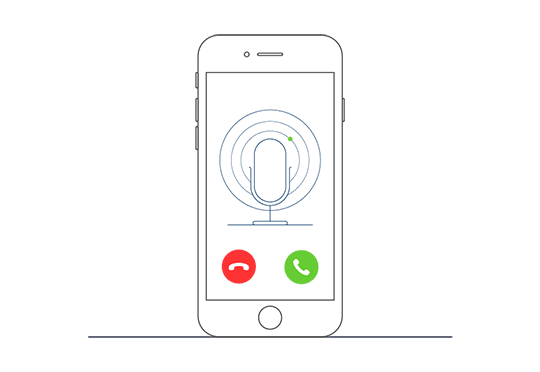

How Apple’s iPhone 7 Is Upsetting Telcos
Since the game-changing release of the first generation iPhone back in 2007, the annual reveal of the newest model is an event that has gathered a following that is borderline fanatical. Since then, Apple has continued to dominate the smartphone industry, raking in a staggering 94% of smartphone industry profits, and their popularity shows little sign of slowing down. In fact today, 395 iPhones are sold in the world every minute. The release of the iPhone 7 was as eagerly awaited as ever, however its reception has already been mixed. A poll from Fortune found that fewer people than ever are actually interested in purchasing the new iPhone. The decision to eliminate the headphone jack has proved controversial, and various techies have claimed it is too similar to the previous generation. Among the displeased are telcos. One particular new feature of the iPhone 7 and iOS 10 could potentially cause trouble for the telecommunications industry.
With the increasing popularity of online communications, VoIP services are constantly growing in demand. WhatsApp recently passed the milestone of 100 million voice calls per day, and Skype now has over 300 million monthly users. The transition away from traditional methods of communication is sure to spell trouble in the future for telcos: and this trouble moves ever-closer upon the release of the iPhone 7. A new feature allows users to answer VoIP calls from the lock screen – a feature that was previously reserved for voice calls only.
Now that Apple has increased the accessibility of VoIP calls for those who invest in the new iPhone, the opportunity for VoIP growth will only increase if this feature is adopted in future evolutions of smartphones. For telcos, an increased popularity of VoIP calls will cause a decrease in their customer usage of voice call minutes. Ultimately, this could drastically affect telco revenues, as customers who make use of this new VoIP accessibility will largely only pay for their used data. This could drastically reduce profits because voice calls are currently responsible for approximately 80% of telco revenue.
The iPhone 7 has also created another problem for telcos. The iPhone 7 has been upgraded to be capable of “lightning fast” speeds, with an LTE-A of up to 450 mbps. The problem is, there are actually very few telcos in the world who can support such speeds. This could create the problem that either iPhone 7 users will be displeased with their telco because they are unable to take advantage of the faster speeds, or telcos will need to work towards expensive upgrading. Either way, the higher speeds of the iPhone 7 could put telcos under pressure, even though they’ve already invested billions of dollars upgrading their networks to provide 4G.
The silver lining
With Apple declaring the latest iPhone as more expensive than its predecessors, telcos can cash in and offer more expensive contracts. Several UK telcos have already announced their pricing options, and EE, Vodafone and O2 have confirmed their higher price plans, forcing consumers to bear the brunt.
Various telecoms have previously voiced their displeasure with VoIP apps, stating that they are in breach of licensing conditions that telecoms themselves have to abide by. With the release of the new iPhone 7 and iOS 10, increased accessibility of VoIP calls is certain to cause further problems for telecoms worldwide.
What’s the solution?
The future success of telecoms may soon depend on their ability to adapt to the shift away from traditional communications, and alter their businesses to fit the unpredictable and ever-changing market. Accepting the increased use of internet based communications, and creating price plans for customers that offer fewer minutes and increased data, is perhaps a logical start point.
Additionally, by deploying new and disruptive services such as Dubber’s Playback, telcos can tap into brand new revenue streams to compensate for the loss of revenue in call minutes. They can even do this whilst maintaining attractive price plans, instead of irritating customers by hiking up the prices of subscriptions and bundles as they have done previously, year after year. Ultimately, innovative and agile service providers will catch the worm.

